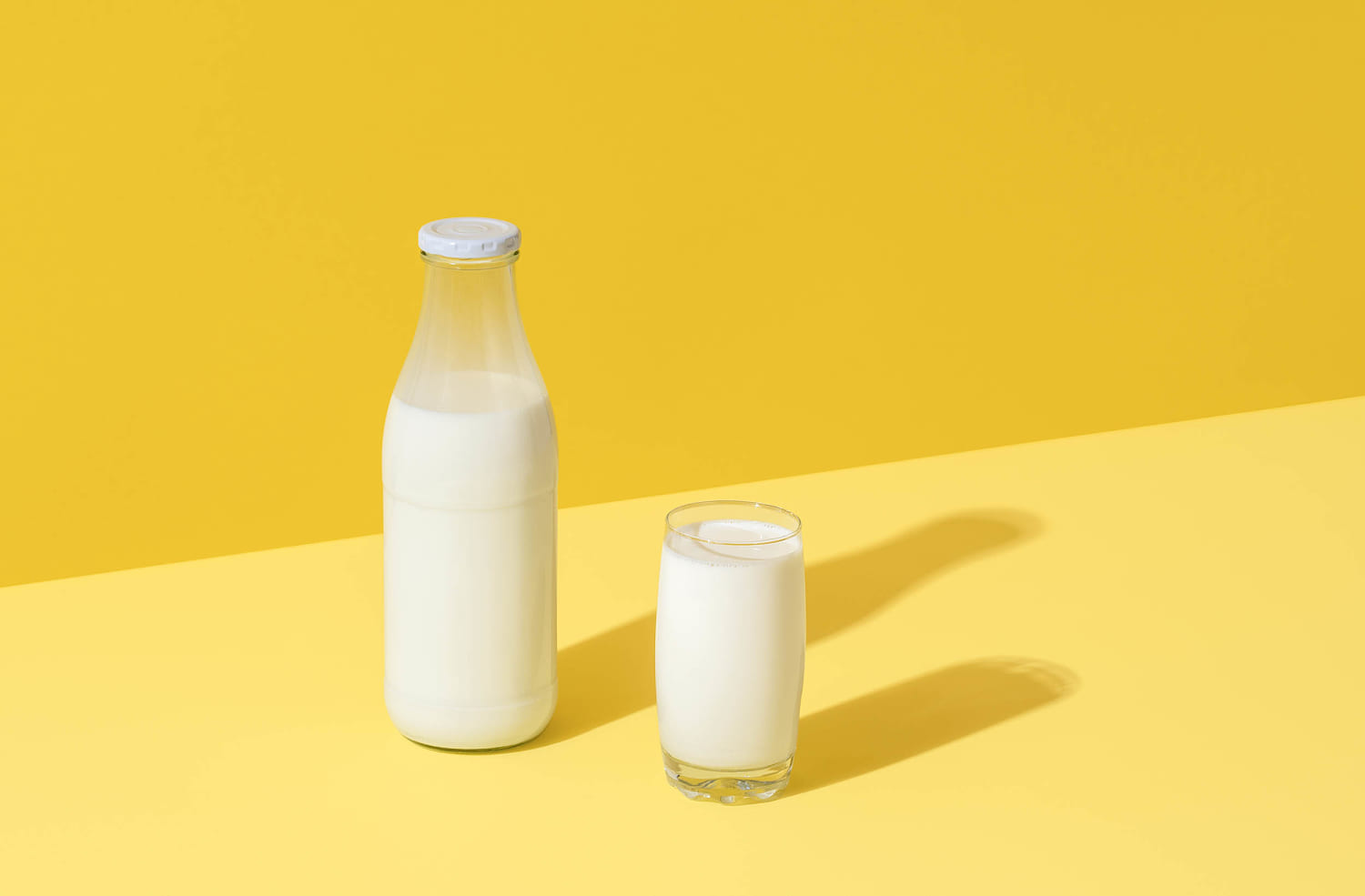
You may not think of milk as a health food, but with more protein and vitamins than other milks, ultrafiltered milk boasts a ton of potential benefits. Ultrafiltered milk is essentially that has gone through an extra filtration process, Caroline Susie, a registered dietitian based in Dallas and spokesperson for the Academy of Nutrition and Dietetics, tells TODAY.com.
That process creates a product with a higher concentration of protein and far less lactose (milk sugar) than regular cow's milk, she explains. For a health-conscious crowd, that extra protein and less sugar is undoubtedly appealing. For others, the texture and taste of ultrafiltered milk is also a draw.
“You get a creamier and, some would say, more delicious outcome by doing this extra filtration,” Susie says. But is ultrafiltered milk actually healthier for you? It depends on your individual dietary needs and health goals, dietitians say. Ultrafiltered milk is cow's milk that has undergone an additional filtration process.
That process involves separating the components of milk by pressing it through a semi-permeable membrane, Julia Zumpano, a registered dietitian with the Cleveland Clinic Center for Human Nutrition, tells TODAY.com. Water, lactose and some minerals are able to pass through the filter while larger components — like protein — are left behind, she explains.
Through this process, manufacturers are able to create a product that's almost "nutritionally ideal," Zumpano says. "You're filtering out the smaller molecules, like the sugar, but concentrating the creaminess allowing for more protein (per serving)," she adds. A contains about 122 calories, 8 grams of protein and 12 grams of carbohydrates (all of which are coming from the lactose).
However, a cup of 2% ultrafiltered milk will provide about the same amount of calories, 13 grams of protein and only 6 grams of carbohydrates. Ultrafiltered milk also provides more vitamin D and calcium, Susie explains, making it overall more nutrient dense than traditional cow's milk. And you'll find ultrafiltered milk with different amounts of fat, including skim, 2% and whole varieties, so you can .
Much of the lactose that's naturally present in cow's milk is removed during the processing of ultrafiltered milk, the experts say. Some companies take the additional step of adding lactase, an enzyme that breaks down lactose, to eliminate even more of the milk sugar in the product. (Check the label for lactose information specific to an individual product.
) That makes ultrafiltered milk generally a good option for people who can't digest lactose but don't want to switch to a . "Depending on what area of the world you're in, it's very common that people are lactose intolerant or just don't break down milk products very well," Zumpano says. So if you experience gastrointestinal issues after consuming traditional cow's milk, you may tolerate ultrafiltered milk more easily.
However, keep in mind that lactose intolerance and milk allergies . Eliminating lactose from milk does not make it safe for those with allergies to dairy. If you like traditional cow's milk and it fits within your dietary needs and preferences, there's no need to switch to ultrafiltered milk, the experts agree.
But ultrafiltered milk can offer some unique advantages for certain groups. For those with diabetes, for example, the lower sugar content of ultrafiltered milk can be "very helpful," Zumpano says. Without lactose, ultrafiltered milk is also a good option for folks with lactose intolerance or those who simply find dairy doesn't always agree with them.
Protein is the “darling nutrient” at the moment, Margaret Mangan, registered dietitian at UNC Rex Nutrition Services, tells TODAY.com, while these days. So, if you’re looking to get with fewer carbs, switching to ultrafiltered milk might make sense.
Older adults, for example, need more protein as they age, so the swap could be beneficial for them, Mangan adds. Because ultrafiltered milk is so full of protein, it may help you stay fuller longer than traditional milk, Susie says. (Mangan refers to protein and fat as "anchors" to the meal for this reason.
) That makes it a good option and anyone else who is prioritizing protein at breakfast time. That's also helpful for folks who may have limited food preferences or appetites, Mangan says, such as cancer patients. "(In) every little bite we want to .
.. really give them as much nutritional impact as possible," she says.
Keeping that approach in mind, Mangan adds, ultrafiltered milk may be a good way for pregnant people, or anyone else with food aversions or limited preferences to get some more protein and nutrients in their meals. However, not everyone needs to pack in more protein, Mangan says. "My concern is that many people are consuming actually too much protein, and that ," she adds.
Because ultrafiltered milk is so high in protein, folks with chronic kidney disease may need to be careful with these products, Mangan says. If you want to incorporate ultrafiltered milk into your diet, the experts recommend using it the way you would any other milk. That means you can simply drink a glass of it or use it in your morning bowl of , Susie suggests.
Try using it in a casserole for a little extra protein, Mangan adds. Or, Zumpano says, use it in your oatmeal, smoothies or scrambled eggs. "It's no different than the way you would drink regular cow's milk," Zumpano says.
"It just provides a little bit more of a favorable nutrition profile.".














